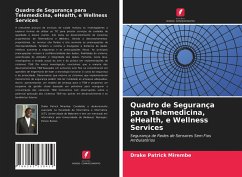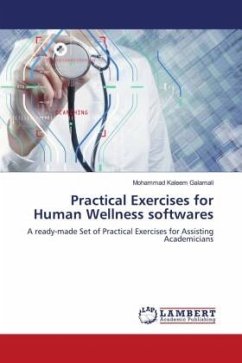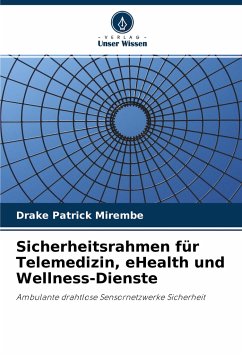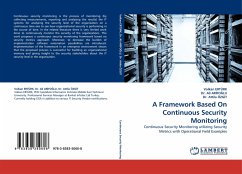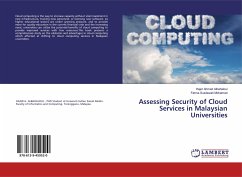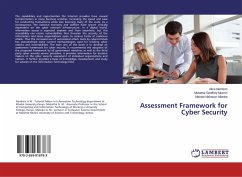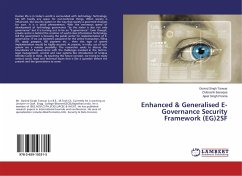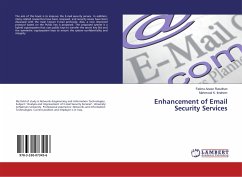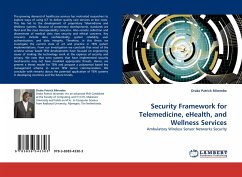
Security Framework for Telemedicine, eHealth, and Wellness Services
Ambulatory Wireless Sensor Networks Security
Versandkostenfrei!
Versandfertig in 6-10 Tagen
32,99 €
inkl. MwSt.

PAYBACK Punkte
16 °P sammeln!
The growing demand of healthcare services has motivated researchers to explore ways of using ICT to deliver quality care services at low costs. This has led to the development of proprietary Telemedicine and Wellness systems. Because of proprietary developments, standards are fluid and this rises interoperability concerns. Also remote collection and disseminate of medical data rises security and ethical concerns. Key concerns include data confidentiality, system reliability, user authentication, and data integrity. Therefore, in this thesis we investigate the current state of art and practice ...
The growing demand of healthcare services has motivated researchers to explore ways of using ICT to deliver quality care services at low costs. This has led to the development of proprietary Telemedicine and Wellness systems. Because of proprietary developments, standards are fluid and this rises interoperability concerns. Also remote collection and disseminate of medical data rises security and ethical concerns. Key concerns include data confidentiality, system reliability, user authentication, and data integrity. Therefore, in this thesis we investigate the current state of art and practice in TEW system implementations. From our investigation we conclude that most of the wireless sensor based TEW developments have focused on engineering issues of making the technology work at the expense of security and privacy. We note that even systems that have implemented security mechanisms may not have modeled appropriate threats. Hence, we present a threat model for TEW and propose a polynomial based key management scheme to secure TEW sensor communication. We conclude with remarks about the potential application of TEW systems in developing countries and the future trends.



